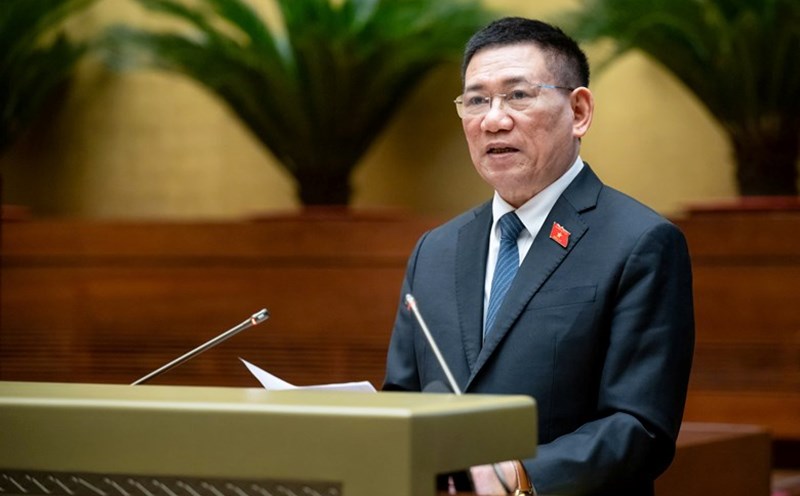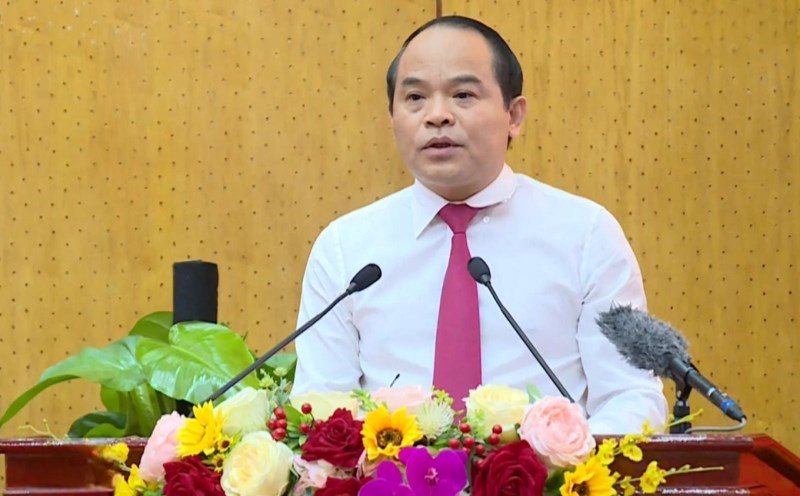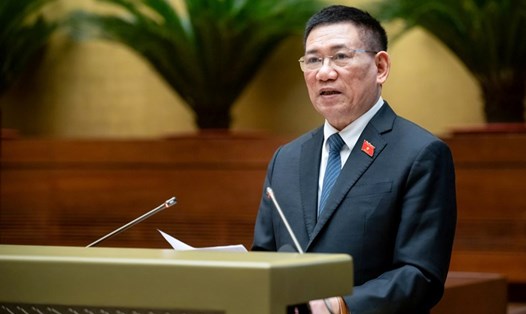On the afternoon of November 28, Deputy Prime Minister Ho Duc Phoc explained and clarified a number of issues that delegates were concerned about regarding the National Assembly's draft Resolution on reducing value-added tax (VAT).
Previously, the Government proposed to continue reducing VAT by 2% in the first 6 months of 2025 to stimulate consumption and support production and business.
The Government proposes to reduce the VAT rate by 2%, applicable to groups of goods and services currently subject to a tax rate of 10% (to 8%), except for the following groups of goods and services: Telecommunications, information technology, financial activities, banking, securities, insurance, real estate business, metals, prefabricated metal products, mining products (excluding coal mining), coke, refined petroleum, chemical products, goods and services subject to special consumption tax. The application period is from January 1, 2025 to June 30, 2025.
Deputy Prime Minister Ho Duc Phoc said that he has not yet assessed the impact on businesses of the 2% VAT reduction "because it is too urgent".
However, the Deputy Prime Minister said that subjectively, GDP has increased; taxes have increased, it can be said that the management policy has had a big impact.
"This conflicts with the VAT Law that the National Assembly recently voted on (VAT rate is 10%). In addition, the budget estimate that was just voted on does not include this item, so when reducing VAT by 2% this time, the Provincial People's Council and Provincial People's Committee must be proactive in increasing revenue to ensure the assigned budget estimate, because reducing taxes does not reduce the budget estimate," said the Deputy Prime Minister.
The Deputy Prime Minister also said that Vietnam's VAT is too low compared to the world. According to the Deputy Prime Minister, currently the VAT of China, India, Israel is 17%, Europe is 20-25%...
Mr. Ho Duc Phoc said that Vietnam's VAT is not even half of what other countries in the world offer, so reducing VAT will reduce the budget by 26,000 billion VND in 6 months. Provinces and ministries must make efforts to ensure the budget.
The Deputy Prime Minister added that the reason for the proposal to reduce VAT for 6 months is because difficulties are not foreseen in 2025, especially in terms of exports, taxes, and customs.
“It makes me sad to talk about tax reduction. Because the most important thing is how to make businesses richer and stronger, and more enthusiastic in contributing to the budget, so that they don’t have to borrow from foreign countries anymore, don’t have to borrow from the people anymore, ensuring sustainable development,” the Deputy Prime Minister shared.
The Deputy Prime Minister said that solving difficulties for businesses does not only rely on taxes - this is only one solution. To solve difficulties for businesses, it is also necessary to involve other factors, such as: Investment procedures, obstacles in production and business, licensing; solving problems with land procedures; supporting credit packages; market; human resources; technology.
“Tax is very small. For example, reducing VAT would reduce 26,000 billion VND, divided among 1 million businesses, which is nothing. But this is an encouragement for businesses to overcome difficulties,” said the Deputy Prime Minister.










